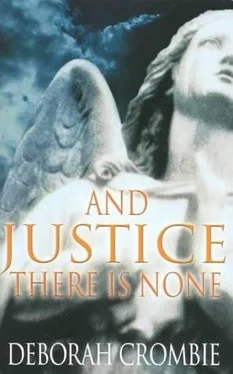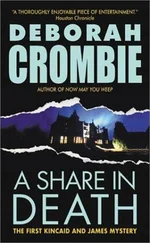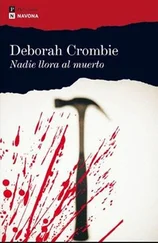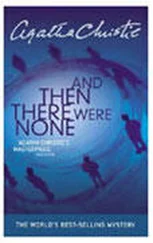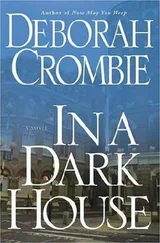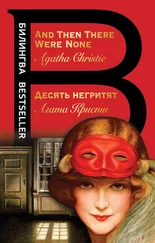A woman- blond, middle-aged, perfectly coiffed and manicured- sat at a writing desk in view of the door. She gave Gemma a half-wattage smile. "May I help you?" she asked, and Gemma heard the unvoiced "Not that's there's anything here you can afford."
Gemma had to agree- if the lack of price tags was any indication. "Is Mr. Arrowood in?" she asked, and saw the flick of the woman's glance towards the back of the shop.
"He's just stepped ou-"
"I think he'll see us."
The woman's smile disappeared altogether at the sight of Gemma's identification. "Just a moment, please."
They waited only a few minutes before Karl Arrowood appeared, as immaculately groomed and suited as she had seen him at his wife's funeral. "Inspector James, and Constable Talbot, is it? What can I do for you?"
"We'd like a word with you, Mr. Arrowood. Your office?"
He took them into the back without demur, seating himself behind a polished, claw-footed desk and motioning them to plush-covered chairs. "I take it you haven't come to tell me you've found my wife's murderer?"
Gemma ignored the question. "Since we spoke last, Mr. Arrowood, it's come to our attention that some of your profits may come from areas other than antiques."
His gaze remained unwavering, slightly amused; his hands rested casually on his blotter. "I've no idea what you're talking about, Inspector."
"Drugs. According to our sources, you've long-standing connections with drug trafficking in the area."
The amusement grew stronger. "Sources? And what exactly are these sources? Comic books? I might be angry if I could take you seriously, Inspector." The gray eyes now held an unmistakable glint of steel. "However, I would remind you that I have a successful business here, and I would not appreciate having my reputation damaged among my customers."
"Good." Gemma smiled. "Then you have everything to gain by cooperating fully. It's not my job to follow up these allegations. I'm only interested in what bearing this new information may have on your wife's death. Could one of your customers, or your suppliers, have attacked her because of some grudge against you?"
"This is an absurd fantasy." His hands tightened, and Gemma saw him make an effort to relax them. "Which you are obviously indulging to mask your own incompetence. I'm not going to continue this discussion without a solicitor."
"You don't have to. I do have a warrant for our technicians to have a look at your office computers, however- I hope that won't be too much of an inconvenience." She glanced at her watch. "They should be here any minute."
"You can't do that!" He gripped his desk, no longer bothering to control his anger.
"I'm afraid I can." Gemma stood, followed by Melody. "Mr. Arrowood, did your wife know about your activities?"
"I've told you, there was nothing for her to know."
"And your sons, do they know? Surely you don't supply your own son with cocaine?" she asked. Kincaid had told her what he suspected about Richard Arrowood's drug habit, and she was inclined to agree.
"My son? What the devil are you talking about?"
"Didn't Richard come to you for a loan to pay off his drug debts?"
"Richard? Yes, he came to me for money, but he always needs money. I don't believe-"
"What did he tell you, when he came to you a few weeks ago?"
"Investments. He said he'd made a bad investment at work. He needed to recover the damages before it came to light."
"And you refused him?"
"Of course I refused him. He'll never make anything of himself if he doesn't learn to deal with his own mistakes."
A good theory, thought Gemma. Unfortunately, she suspected Richard Arrowood was long past benefiting from it.
***
Kincaid had left several messages on Eliza Goddard's answering machine, asking her to ring him back, but she had not. He urgently needed to see Marianne Hoffman's papers again, and he hoped that persuasion would be enough to convince Eliza to turn over her mother's things. If his attempt failed, however, he'd have to issue a warrant for the collection of the items.
But first, he had one more avenue to explore. He drove to Islington, leaving the car near the twisting alleyways of Camden Passage. Here, Marianne Hoffman's body had been found slumped against the door of her shop, two months earlier.
They had interviewed all the nearby shopkeepers and residents, but Kincaid remembered that the man who owned the shop next door to Hoffman's had been a particular friend. It took him a moment to pinpoint the exact location, as Christmas decorations altered the look of the shop fronts. Marianne Hoffman's premises had been taken over by someone selling antique dolls, but he recognized the cricket bats and leather golf bags in the window next to it.
Edgar Vernon sold antique sporting equipment, with the addition of old suitcases, globes, walking sticks, or anything else that might tickle the fancy of those dreaming of better Edwardian times. Today Kincaid saw a new addition carefully displayed in the front window: a set of beautifully preserved lead soldiers.
He went in, breathing in the sweet mustiness of old wood and leather. Vernon looked up from his desk, his expression momentarily puzzled, then gave a smile of recognition.
"Mr. Kincaid, isn't it? What can I do for you?" He was a trim man in his fifties with a small mustache and wire-rimmed spectacles.
"Mr. Vernon, if you have a few minutes, I'd like to chat with you about Marianne Hoffman again."
"I was just about to make some coffee. If you'll have a seat, it will only take me a moment."
"I'd rather poke about, if that's all right." It occurred to Kincaid that between the case and the move, he had altogether neglected his Christmas shopping. He caught sight of a silver-handled walking stick that he thought might suit his father admirably, but what about his mother?
By the time Vernon returned with a tray and cafetière, Kincaid had found the ideal thing- a badminton set, complete with original net and birds. Not exactly a seasonal gift, he supposed, but come spring he could imagine his mother setting it up between the apple trees in her back garden.
"Now sit, please." Vernon pulled a horn-and-hide chair up to his desk. "A souvenir from a safari," he explained. "And surprisingly comfortable. You said this was about Marianne? Have you discovered her killer?"
"I wish I could tell you that we had. And unfortunately, there's been another murder. In Notting Hill, the wife of an antiques dealer."
"Ah. I did wonder if there was a connection when I read about the case in the papers. Do you think it was the same killer?"
"We think it very likely. The victim's husband, Karl Arrowood, has quite a prosperous antiques business in Kensington Park Road. Do you know him?"
"I know of him, but merely by dealers' word of mouth. I've never done business with him personally- not my line."
"Do you know if Mrs. Hoffman knew him? Or his wife?"
"Not that I remember her mentioning. But, then, Marianne didn't talk much about herself."
Kincaid settled back rather gingerly into the horn curve of the chair. "Can you remember anything she did tell you about herself, or her background? I had the impression when we spoke that you were quite good friends."
"Yes." Vernon sipped at his coffee. "In fact, on reflection I'd say that Marianne was probably my closest friend, and vice versa. Not only because neither of us had anyone else, but because we were congenial spirits."
"Nothing of a romantic nature?"
Vernon smiled. "That was a complication spared us. My lover died five years ago of AIDS, you see."
"I'm sorry," Kincaid replied.
"There's no way you could have known. Anyway, the point was, Marianne had a way of letting you know she understood your feelings without making a fuss- a remarkable sort of quiet empathy. Although we saw each other off and on in the course of the day, over the years we developed a ritual of having take-away curry together on Friday nights. We would watch the telly, share a bottle of wine. I know it seems a small thing, but it astonishes me how much I miss it. And now, here I am talking your ear off just to lubricate my tongue."
Читать дальше
